Share
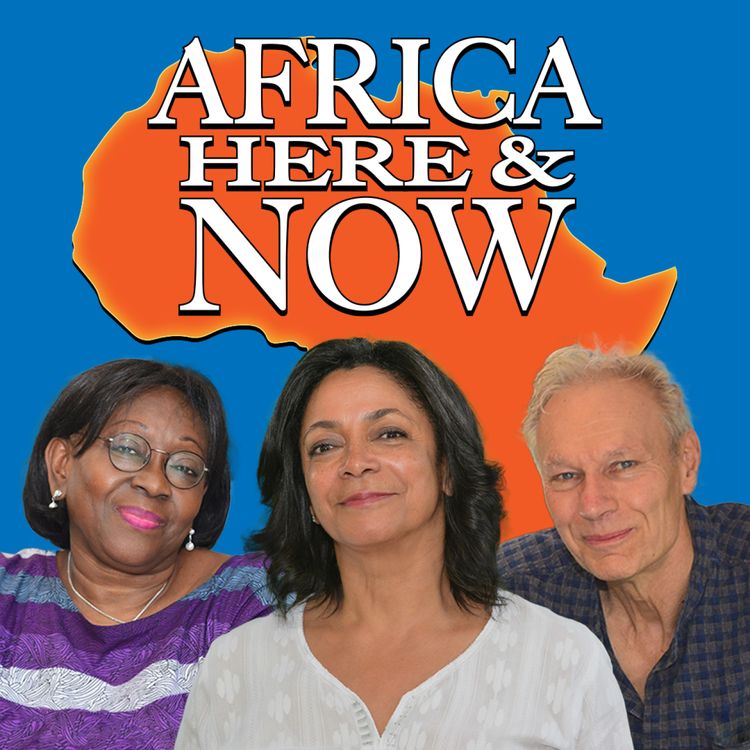
Africa Here and NOW
Ruto’s Red Carpet in DC, Nigerian journalist DAVID HUNDEYIN - why he fled Nigeria and the lamentable state of African journalism, Christianity’s African Majority and, 57 years on – reflections on Biafra
Kenya’s PRESIDENT WILLIAM RUTO gets the red-carpet treatment in Washington DC. Why has he become the first African leader IN MORE THAN FIFTEEN YEARS to receive the privilege of a state visit to the US?
We’re in conversation with Nigerian investigative journalist, DAVID HUNDEYIN about why he fled his country fearing for his life and (CAN LOSE about) the lamentable state of journalism on the continent. David’s new book, Breaking Point, is published by Abibiman.
Africa is already the continent with the largest number of Christians. By mid-century it’s reckoned that almost half the global flock will live in sub-Saharan Africa. How will African spirituality affect Christianity? We ask eminent BISHOP TREVOR MWAMBA.
DONU reflects on the 57th anniversary of THE Biafran declaration of independence. And it’s personal, her dad was Biafra’s ambassador to the UK.
More episodes
View all episodes
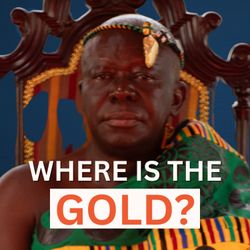
3. Ghana: The Kingdom of Gold, British Looting and the Ashanti Golden Stool
34:23||Season 6, Ep. 3We talk to author, BARNABY PHILLIPS about his new book which details the British looting of Kumasi, the Ashanti heartland, in what is now Ghana. There had been many conflicts in the course of a century between the British and the Ashanti, but Barnaby focuses on the battle of 1874 in which the Asantehene's palace was systematically stripped of its treasures, many of which had sacred value. The loot was then officially auctioned off at Cape Coast Castle to British officers and traders. Described by one contemporary MP as 'simply a policy of robbery', the book highlights the moral contradiction of the British Empire. The British justified the invasion as a. mission to bring 'civilisation' to 'barbarians'. But the book sheds light on the 'racist hypocrisy' of the victors who, after destroying the city, sold the sacred religious artifacts to London jewellers and private collectors to raise fund for the war effort.The cultural heart and soul of the Ashanti kingdom - The Golden Stool - though was never taken. It was kept hidden in forests and protected by villagers for decades - ensuring the continuity of the kingdom despite the exile of its king and queen.Barnaby traces the specific journeys of famous items, like the 'Wallace Head',from the moment of their looting to their current locations. A key takeaway is how these objects shifted from being sacred royal regalia in Kumasi to being 'curios' in Victorian drawing rooms, and finally to contested museum exhibits in the 21st century.Barnaby tells us more about the recent return of some artifacts - a mere 32 of them - in 2024 and that it was the culmination of a century of diplomacy.Despite the burning of their capital in 1874, and the exile of their King Prempeh I in 1896, the Ashanti kingdom survived. We hear how the monarchy's prestige has been restored and how the current Asantehene, Osei Tutu II, successfully negotiated the return of his ancestors' treasures, if only on a loaned basis.I was joined by Patrick Smith, Editor of Africa Confidential and Writer and Broadcaster, Donu Kogbara.Barnaby Phillips' book The African Kingdom of Gold: Britain and the Asante Treasure is published by Oneworld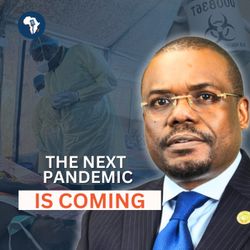
2. WARNING: The Next Pandemic is Coming - Africa CDC Chief on 32% Budget Theft and Survival
28:32||Season 6, Ep. 2COVID-19, Africa, health preparedness, pandemic response, vaccine production, health financing, regional collaboration, conflict resolution, health systems, infectious diseases, ghost workers, corruption, inefficienciesIn this conversation, Dr. Jean Kaseya, Director General of Africa's Centres for Disease Control and Prevention (CDC), discusses the impact of COVID-19 on the continent. He emphasises the continent's need for improved health preparedness and self-sufficiency. He outlines five key pillars for pandemic preparedness, including health financing, local manufacturing, and digital health initiatives. We also cover the importance of regional collaboration, innovative financing strategies, and the intersection of health and conflict resolution. Dr. Kaseya highlights lessons learned from the pandemic and the necessity of being prepared for future outbreaks, while also addressing the challenges posed by infectious diseases in Africa.Takeaways:*Preparedness is essential for national and global security.*Africa must increase health financing and reduce inefficiencies. *Local manufacturing of health products is crucial for self-sufficiency.*Innovative financing methods can enhance health budgets.*Vaccine nationalism highlighted Africa's dependency on external supplies.*Regional collaboration is vital for effective health responses.*Health outcomes are linked to conflict resolution efforts.*Lessons from COVID-19 inform future health strategies.*The next pandemic is likely to be zoonotic and influenced by climate change.*Addressing infectious diseases requires a multifaceted approach.Chapters00:00Assessing Africa's COVID-19 Experience03:05Pillars of Pandemic Preparedness06:01Innovative Financing for Health08:52Local Vaccine Production and Technology Transfer11:53Regional Collaboration in Health14:51Health and Conflict Resolution17:57Lessons Learned from COVID-1920:49Preparing for Future Pandemics24:11Progress and Challenges in Health Systems27:03Addressing Infectious Disease Outbreaks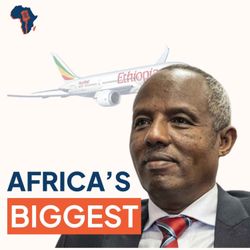
1. The Ethiopian Blueprint: CEO Mesfin Tasew on $12.5B New Airport and Why Other African Airlines Fail
37:11||Season 6, Ep. 1Ethiopian Airlines, Mesfin Tasew, aviation leadership, African aviation, airline strategy, Vision 2040, infrastructure investment, MRO Services, airline culture, career achievements In this conversation, Mesfin Tasew, CEO of Ethiopian Airlines, shares his extensive journey within the airline, highlighting the importance of leadership, strategic vision and a strong corporate culture in achieving success. He discusses the ambitious Vision 2040 for Ethiopian Airlines, the challenges faced by African aviation, and the critical investments in infrastructure and human capital necessary for future growth. Mesfin reflects on his more than 40 year career at Ethiopian Airlines, his achievements and the spirit of collaboration that has driven the airline's success.Takeaways*Mesfin Tasew has over 40 years of experience at Ethiopian Airlines*Leadership succession from within has been key to the airline's success*Ethiopian Airlines has a strong corporate culture that motivates employees*The airline's Vision 2040 aims to significantly increase passenger and cargo transport*Investment in infrastructure is crucial for the airline's growth*Ethiopian Airlines has operational autonomy, allowing for strategic decision-making without political interference*Challenges in African aviation include high operational costs and lack of cooperation among airlines* The new Bishoftu International Airport is a major investment for future growth* Training and developing internal talent is a key priority for Ethiopian Airlines* Mesfin reflects on a fulfilling career and the collaborative achievements of the airline.Chapters:00.00 Journey of a Leader: Mesfin Tasew's Background09:59 Ethiopian Airlines: A successful model19.47 Vision 2040: ambitious Goals for Ethiopian Airlines29.56 Challenges in African Aviation: A Broader Perspective36.11 Reflections on a Career: Achievements and Legacy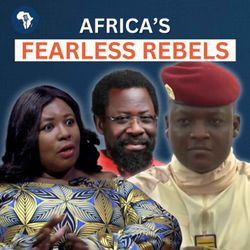
8. Africa's Defiant Rebels: Bobi Wine, Dele Farotimi, Peter Obi, Dora Siliya
16:11||Season 5, Ep. 8Join us for our explosive Year-Ender Special, bringing together the most powerful, controversial and uncensored interviews from across the continent. This is the truth about African power - who's fighting for it, who's paying the price and who refuses to be silenced.In this landmark episode, rounding off 2025, we dive deep into the struggles for democracy, justice and dignity featuring:NIGERIA's DELE FAROTIMI, The Lawyer Who Went to Jail: Hear from the revered lawyer and pro-democracy activist immediately following his release from jail. Dele details his relentless criticism of his country's justice system and government, and why he believes he has no choice but to fight for change.UGANDA'S BOBI WINE: His Dangerous Race to the Top: We sit down with Uganda's main opposition leader as he gears up to challenge a decades-old regime under incredibly oppressive conditions. His message of defiance is consistent and resolute.NIGERIA's PETER OBI: The Man Who Would be President: "The President in Waiting" addresses the core issues crippling the current government, how he sees his path to victory and his candid answer to the critical question: Can an Igbo candidate truly win the presidency in Nigeria?ZAMBIA'S DORA SILIYA: The Minister Who Fought a Tide of Slurs: Former six-time minister, Dora Siliya reveals the painful, sexist smear campaign alleging she SLEPT HER WAY TO THE TOP. This is her ;powerful, emotional account of battling political slander and paving the way for more women to enter African politics.The tide of social media content on BURKINA FASO'S Captain IBRAHIM TRAORE is the subject of our conversation with journalist DAVID HUNDEYIN.How much of it is TRUE? And how. much is FALSE?THE CALL FOR AFRICA FIRST: Former AU Ambassador ARIKANA CHIHOMBORI delivers her sharp, compelling answer to global politics in the President Trump era: if the West says 'Amercia First', then Africa's response must be a definitive 'AFRICA FIRST'.ZAMBIA'S PRESIDENT HAKAINDE HICHILEMA, in an EXCLUSIVE interview with Africa Here and Now, tells of the wrangle with the family of his deceased predecessor, EDGAR LUNGU, over where the former president should be buried. He addresses the controversial allegations of WITCHCRAFT being involved. President Hichilema also answers a question that many have thought but not asked: Why Does He Wear WHITE GLOVES?A ROYAL TRAGEDY: An Ethiopian Prince reveals the true saga surrounding the overthrow of his grandfather EMPEROR HAILE SELASSIE, ETHIOPIA's last Emperor. Prince Be'ede Mariam gives us a detailed and moving account of life in the palace with his grandfather and what happened when the soldiers came for him.delefarotimi #peterobi #bobiwine #dorasiliya#africafirst #nigerianpolitics #ugandanpolitics #zambianpolitics #haileselassie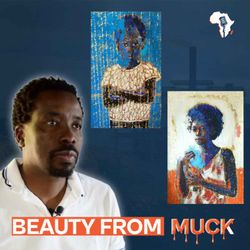
7. Zambia's MINING POLLUTION - Artist Stary Mwaba
15:03||Season 5, Ep. 7Zambian visual artist, STARY MWABA, who grew up in the country's Copperbelt, discusses the enduring environmental and human cost of resource extraction in his home region. He details the history and current reality of the infamous Black Mountain in Kitwe - a century-old toxic slag heap - that is now a site of dangerous, informal mining and re-extraction. Stary explains his unique artistic technique, which literally perforates newspaper headlines to make space for the 'little narratives' of the exploited people and children whose suffering fuels the world's 'green' revolution.His signature method is creating a surface by collecting newspaper stories, stacking them on transparent baking paper' and then perforating the newsprint with minute holes. The idea came from an earlier installation in which he used vegetables and colour to demonstrate how plants absorb water and minerals - a critique of Chinese engagement.The physical act of 'removing words' and perforating the paper is to symbolically 'create space for the little stories' - the marginalised, human narratives. The work is 'painstaking' requiring intense concentration, which Stary describes as a form of 'therapy'.Stary paints from the reverse side of the perforated paper. He imposes the image so the paint literally 'seeps through the holes' and onto the front side, making the portrait a physical breakthrough of the headline.He displays the paintings by suspending them so that the viewer can 'see both sides of the story.'Follow Stary on instagram: starymwabaYou can see some of his works at the 37d Gallery, Lusaka#starymwaba#Zambianartist#copperbelt#coppermining#coblatmining#greenenergy#greeneconomy#evironmentaljustice#acidrain#pollution#zambia#kitwe#blackmountain#africanart#socialcommentary#artivism#untoldstories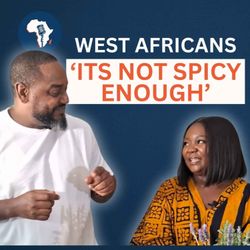
6. The Wood Kitchen: DRIVING Africa's FOOD REVOLUTION
22:22||Season 5, Ep. 6Meet William and Lulu Wood, a Zambian couple known for their work in reframing and promoting Zambian cuisine through a contemporary lens, primarily through their platform, The Wood Kitchen.I went to The Wood Kitchen when I was visiting Lusaka a short while ago and had a fabulous time chatting with the couple. This is a family endeavour that focuses on sharing easy fusion recipes, cooking tips, and celebrating Zambia's diverse and delicious foods. As you'll hear, Lulu and William are acutely conscious of the cost of food in today's Zambia - food inflation, although down from July's figure, was in August this year at just under 15%. So affordability is an essential element of their recipes. They use digital media (like Facebook, Instagram, and YouTube) to showcase their work.Speaking to William and Lulu, I soon discovered that their main goal is to promote an under-explored cuisine by elevating and showcasing traditional Zambian dishes, which they feel are often underrated on the global stage.Fusion Cooking: They blend traditional Zambian foods from their respective heritage (Tonga and Lozi tribes) with techniques and flavours they've encountered while visiting various countries, creating a unique fusion style.Championing Local Ingredients: They emphasize using local, ethically sourced Zambian ingredients. They grow many of their own vegetables and herbs, a practice they recommend.Food Influencers: They've gained a growing online following and have been recognized as SME change-makers by META for harnessing digital media. They have also represented Zambia internationally in food events.Cultural Preservation: They see food as a powerful tool for celebrating and preserving Zambian heritage, educating both younger generations and wider audiences about their culture through cooking and sharing recipes.I hope you enjoy this show as much as I did making it. MD#zambiancuisine#chikanda#africanfood#culturalpreservation#food #foodies#foodinfluencers#fusioncooking#thewoodkitchen#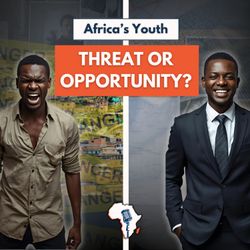
5. Young, Urban, Digitally Connected - Africa's Youth DEMAND Change
22:03||Season 5, Ep. 5One in four people in the world will soon be African, and the majority will be under 30, urban, and digitally connected. We discuss with MICHELLE GAVIN how the demographic shift represents a new era for the continent —one that is already shaking the foundations of long-standing political power.Is this wave of popular demand a recipe for chaos or democratic renewal? Listen to find out why the "old playbook" for African politics is obsoleteThe conversation explores the transformative potential of Africa's youth in shaping the continent's political landscape. With a significant portion of the population being young and urban, there is a growing demand for change that challenges the existing political elite. The discussion delves into the implications of demographic shifts, economic challenges, migration patterns, and the role of external actors in Africa's future. It highlights the potential for both unrest and democratic renewal as young people assert their rights and seek opportunities for a better life.takeawaysOne in every four of the world's population will be African.Political volatility is going to shake up the region.Young people are increasingly urban and connected.Demographic dividend comes when the transition comes.Migration is going to be a part of the story.The future of work is uncertain for Africa.External actors are not the main factor driving change.Violence and unrest will happen, but not everywhere.Senegal could end up as an upholder of constitutionalism.We can learn a lot from these young societies.Michelle Gavin's book: How Urban Youth are Transforming African Politics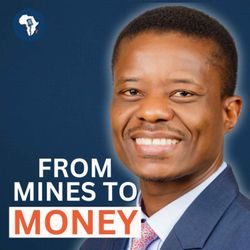
4. Zambian Bank CEO SONNY ZULU on TARIFFS, Job Creation, Leadership and His Biggest Mistake
34:30||Season 5, Ep. 4Standard Chartered Bank's Zambia CEO, SONNY ZULU, shares his journey from aspiring medical doctor, to metallurgist in his country's copper mines to the boss of one of the top banks. He discusses the importance of leadership and management skills, the challenges of job creation in Zambia, which he says, is a collective responsibility, not just for government. This is particularly crucial for a country like Zambia which has a median age of just 17. We talk about the bank's role in fostering economic growth. Sonny says the bank's focus is on empowering marginalised communities, especially women and young people. Training in financial management is as important as giving grants, he says, for successful entrepreneurship. I ask Sonny about the impact on African economies of American tariffs. He stresses the importance of intra-African trade. He identifies energy as one of the country's greatest challenges going forward, which is essential to fuel the ambitious increase in copper production which has been outlined by the government. Finally, Sonny tells us about his biggest professional mistake....We used data and graphics from KASI INSIGHT, Africa's leading decision intelligence company. They provide data-driven insights by combining high frequency data with AI to unpack markets.Chapters:00:00 From Medicine to Metallurgy: A Career Journey04:55 The Importance of Leadership and Management Skills10:45 Creating Jobs and Economic Growth15.05 Standard Chartered's Role in Economic Development19:56 Navigating the Retail Banking Landscape30:28 Impact of Global Tariffs on African Economies34:00 Learning from Mistakes: A Leadership Perspective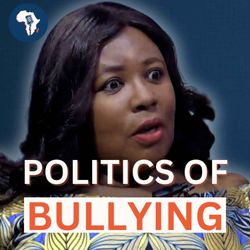
5. Fmr Zambian Minister REVEALS "Slept My Way to the Top" Smears: Sexism, Graft and The Price of Power
38:44||Season 3, Ep. 5Former Zambian minister, DR DORA SILIYA, lifts the lid on the politics of her country. She reveals the vicious campaigns waged against her in the Zambian press and the accusations that she had slept her way to the top. In her book 'Minding My Father's Country' she recounts how she managed to navigate the turbulence of Zambian political life from a young age. "Even just getting the party to adopt me, to put my name on the ballot paper..was so difficult. I just felt I was being discriminated because I'm a woman."During her two decades in politics, DR SILIYA headed six ministries. "I had some of the worst headlines that you've ever heard of. I remember people saying the reason she's always appointed minister is because she uses her 'back power'."At one point, she was even arrested: "I was arrested purely because I made a very tough decision, which I thought was the right decision, supported by two presidents, Levy Mwanawasa and Rupiah Banda. We needed to sell a stake in the national telecoms because it was not doing well...Even when the final transaction was done, I wasn't there at all. It was one of the saddest periods of my time."Since writing the book, DORA says, many women have told her how afraid they are of entering Zambian politics. "It's too much because instead of issues, people believe that it must be about you the person."Zambia, she says, is becoming increasingly polarised along ethnic, tribal lines, and this she contends, couold be catastrophic for the country that has enjoyed more than 60 years of peace. "I think for the first time in my life this tribal tension is is real...whether it's the Tongas versus the Bembas, the Bembas and the Easterners...it is quite dangerous. If we are not careful, this is the first time we would have a civil war in this country."Corruption is another of DORA's concerns: "Corruption is endemic in Zambia...it has become such a way of life that people expect to pay at the traffic stop, they expect to pay to get their passport on time, they expect to pay somebody at the hospital to get an appointment quickly.."Minding My Father's Country by Dora Siliya, Reach Publishers